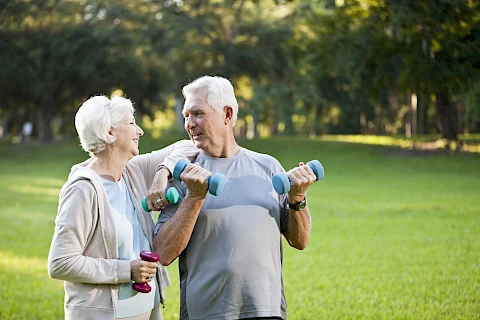
As we age, the importance of maintaining optimal bone health increases. Among the nutrients vital for this purpose, vitamin D stands out. Not only does it aid in maintaining strong and healthy bones, but it also facilitates the absorption of calcium – one of the key minerals responsible for bone density. Understanding the importance of Vitamin D and incorporating it appropriately into your lifestyle is paramount to leading a fulfilling, active life in your golden years.
The Importance of Vitamin D
Vitamin D, often referred to as the sunshine vitamin, is a fat-soluble nutrient responsible for several functions within the body. Vitamin D facilitates the body's absorption of calcium, a key mineral in the formation of bone tissue. Without adequate levels of vitamin D, the body struggles to absorb sufficient calcium, regardless of the intake, leading to softer, weaker bones.
When vitamin D levels become consistently low, it can lead to conditions such as osteoporosis and osteomalacia, characterized by decreased bone density and increased fracture risk. Seniors, in particular, are at a higher risk of developing such conditions, making the maintenance of optimum vitamin D levels even more critical as we age.
Sources of Vitamin D
The body can produce vitamin D naturally through direct exposure to sunlight. However, this method becomes less efficient as we age, making it necessary for seniors to look for alternative sources. Sun exposure also requires striking a balance. You want enough sun exposure for the body to produce vitamin D, but not so much that it leads to skin cancer. Generally, 15 to 30 minutes of midday sun exposure on the face, back, arms, or legs twice a week is considered adequate.
Diet is another prominent source of vitamin D. Fatty fish, such as salmon and mackerel, are natural sources of this crucial nutrient. Other sources include cheese, egg yolks, and foods fortified with vitamin D like certain dairies and cereals. Incorporating these into your diet can ensure a steady intake of vitamin D. Of course, always consult with your care provider before making major dietary changes.
Preventing Vitamin D Deficiency
Consistent intake of vitamin D is essential for seniors to prevent its deficiency. It begins with understanding the amount of vitamin D needed based on individual age, lifestyle, and overall health. For most adults, the daily recommended intake is 600 to 800 International Units (IU), with seniors often falling on the higher end of that range.
Keeping a vitamin-D-rich diet and getting regular, safe sun exposure are practical ways to prevent its deficiency. In some cases, however, food and sun exposure may not be enough, especially for seniors. If you find it challenging to meet your vitamin D needs through these methods, consult a doctor or dietitian. They can provide guidance on the possibility of taking vitamin D supplements.
Get Help and Care at Home for Seniors
For seniors living in Santa Monica, Los Angeles, Pacific Palisades, and Marina del Rey, taking care of your health doesn't have to be a lonely journey. Reach out to Senior Helpers Santa Monica to learn more about our home care services and how we can help with meal planning and prep, nutrition management, and more.